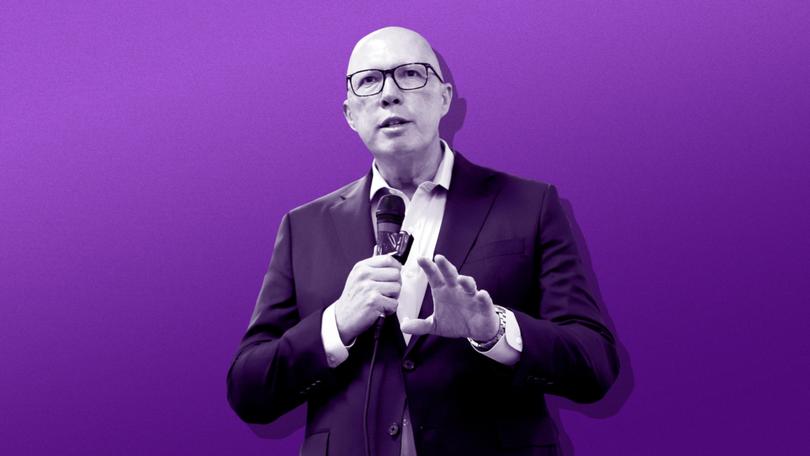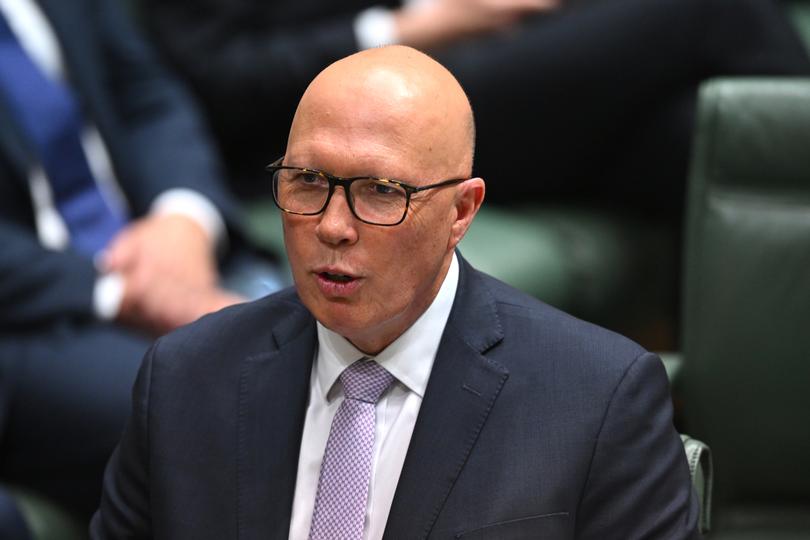SIMON BIRMINGHAM: Scare campaigns may help an Opposition’s vote, but not the national interest
SIMON BIRMINGHAM: Dutton has shown conviction, rejecting billions of dollars in populist spending where Albanese is unable to explain where the money is coming from, or how it will make Australia stronger.

You can tell a lot about a possible prime minister from how they conduct themselves as opposition leader.
Will everything be about politics, or do they have the national interest gene? Is there an ability to put politics aside and change gear when something fundamentally matters to Australia’s long-term interests?
Peter Dutton is demonstrating himself to be a leader with that national interest perspective when it comes to the big calls.
Sign up to The Nightly's newsletters.
Get the first look at the digital newspaper, curated daily stories and breaking headlines delivered to your inbox.
By continuing you agree to our Terms and Privacy Policy.Yes, of course he plays a hard political game. That’s the nature of our adversarial system and you stand zero chance of winning if you just let the other side walk all over you.
An opposition is there to provide the view of an alternative government and to challenge a government when it is making bad policy decisions that are against the national interest.
On several big calls over recent months, such as NDIS reform, aged care reform and social media reforms, Peter Dutton has shown how he can and does put down his partisan cards in the national interest.
The National Disability Insurance Scheme has been the biggest change to government services in recent decades.
No decent Australian would argue with the intent of the NDIS. But as the cost of the NDIS, which is now supporting more than 660,000 Australians, began to pass the cost of Medicare which supports all 27 million Australians, it was clear that its sustainability was in doubt.
The Morrison government tried to make the NDIS sustainable by tackling the surge in eligibility, blowout in costs, and crackdown on some of the dubious services being provided at taxpayers’ expense.
Yet in a crass case of politicking before policy making, the then Albanese opposition blocked any reforms. Worse still, they went straight to the political scare playbook and urged people to vote for them to “save the NDIS”.
Enter government and Anthony Albanese suddenly discovers the NDIS sustainability problem is now his problem. Bereft of any pre-election policies to tackle this issue, Labor has a two-year review following which policies that sound remarkably similar to those proposed reforms of the former Liberal-led government emerge. Quelle surprise!

In the last year before an election Peter Dutton could easily have copied Albanese’s tactics and dusted off Labor’s own scare campaign and sought to capitalise on concerns in the disability community.
But he didn’t. Peter Dutton put the national interest first. By getting his team to vote for reforms he has secured savings up to an estimated $3 billion per year to help the budget, taxpayers and NDIS sustainability, while providing the support participants need.
Aged care was a similar story. It’s politically easy to spend more on aged care, but much harder to determine who pays for it. This reflects the obvious challenges and risks that come with an ageing population.
The aged care royal commission delivered its final, expensive report in the final term of the Morrison government. Our last budget responded to the royal commission and built on a five-year plan to improve aged care, with new home care packages, respite services, training places, retention bonuses and infrastructure upgrades.
Following the change of government, Dutton understood that implementation of the reforms would only be successful if they could be paid for and made sustainable in the long run.
In his very first budget reply speech, Peter Dutton made clear that the Liberal Opposition would, under his leadership, work with the Labor Government to advance sensible financial savings in aged care, as well as the NDIS.
True to his word, rather than a scare campaign about how much more pensioners or retirees may need to pay, Dutton last week led the Opposition to vote for reforms that the Government says will save an estimated $12.6 billion when fully implemented over 11 years.
Dutton’s responsible attitude is a far cry from Labor’s infamous Mediscare campaign against Malcolm Turnbull, which was based on an imaginary policy.
Even on social media reforms, Peter Dutton could have tried to curry political favour with powerful tech bosses like Elon Musk, but instead stood up for the wellbeing of our kids by leading Labor to this week’s adoption of social media restrictions.
Of course, it’s not all positive. That’s because the test of political leadership isn’t only in what an opposition leader supports, but also what they oppose.
Again, it takes conviction and strength to stand against one-off cash splashes, one-off student debt write-offs, or large government subsidies to handpicked industrial winners.
Dutton has shown that conviction and strength, rejecting billions of dollars in populist spending where Anthony Albanese is unable to explain where the money is coming from, or how it will make Australia stronger.
Australians will weigh many things at the next election. The demonstrated track record of an opposition leader willing to both put the national interest first, and to make the tough calls, should be high on their assessment.
Simon Birmingham is the shadow foreign minister
Originally published on The Nightly
